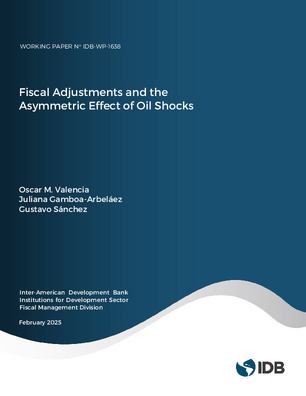Fiscal Adjustments and the Asymmetric Effect of Oil Shocks
Date issued
Feb 2025
Subject
Fiscal Policy;
Oil Price;
Petroleum;
Oil Production;
Fiscal Rule;
Demand Shock;
Emerging Market;
Oil Reserve;
Public Expenditure;
Gross Domestic Product;
Commodity Price
JEL code
C25 - Discrete Regression and Qualitative Choice Models • Discrete Regressors • Proportions • Probabilities;
E62 - Fiscal Policy;
F41 - Open Economy Macroeconomics;
H62 - Deficit • Surplus;
Q43 - Energy and the Macroeconomy
Category
Working Papers
This research employs a quadratic exponential model to examine the dynamics of fiscal adjustments in the context of oil shocks. The findings suggest significant state dependence, with past fiscal adjustments increasing the likelihood of future adjustments and an asymmetry in oil shock effects. Supply shocks reduce the probability of fiscal adjustments, while demand shocks increase it. Furthermore, the impact of these shocks depends on several factors. Oil demand shocks positively impact fiscal adjustment even during downturns, providing a stabilizing effect. Net oil exporters are more affected by oil shocks than importers, experiencing more significant negative effects from supply shocks and more benefits from demand shocks. Fiscal institutions play a critical role in mitigating the volatility induced by oil shocks, with fiscal rules targeting primary or structural balances proving particularly effective.
Generative AI enabled




